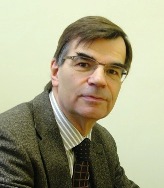Keynote Speakers
Professor Lillian Lee, Cornell University, USA
Abstract
Bio
Abstract
Virtually all current spoken dialogue systems are designed to operate in
either a specific carefully defined domain such as restaurant information
and appointment booking, or they have very limited conversational ability
such as in Siri and Google Now. However, if voice is to become a significant
input modality for accessing web-based information and services,
then techniques will be needed to enable conversational spoken dialogue
systems to operate within open domains.
This talk will discuss methods by which current statistical approaches to
spoken dialogue can be extended to cover much wider domains. It will be
argued that unlike many other areas of machine learning,
spoken dialogue systems always have a user on-hand to provide supervision.
Hence spoken dialogue systems provide a unique opportunity to automatically
adapt on large quantities of speech data without the need for costly annotation.
Bio
He is a Fellow of the Royal Academy of Engineering, the International
Speech Communication Association, the Institution of Engineering and
Technology, and the Institute of Electrical and Electronics Engineers.
In 2004, he was a recipient of an IEEE Signal Processing Society Technical
Achievement Award; in 2010, he received the ISCA Medal for Scientific
Achievement; and in 2013, he received the European Signal Processing Society
Individual Technical Achievement Award.
Language Adaptation
As we all know, more and more of life is now manifested online, and many
of the digital traces that are left by human activity are increasingly
recorded in natural-language format. This availability offers us the
opportunity to glean user-modeling information from individual users'
linguistic behaviors. This talk will discuss the particular phenomenon of
individual language adaptation, both in the short term and in the longer
term. We'll look at connections between how people adapt their language
to particular conversational partners or groups, on the one hand, and on
the other hand, those people's relative power relationships, quality of
relationship with the conversational partner, and propensity to remain a
part of the group.
Lillian Lee is a Professor of Computer Science at Cornell University.
She is the recipient of the inaugural Best Paper Award at
HLT-NAACL 2004 (joint with Regina Barzilay), a citation in "Top Picks:
Technology Research Advances of 2004" by Technology Research News (also joint
with Regina Barzilay), and an Alfred P. Sloan Research Fellowship; and in 2013,
she was named a Fellow of the Association for the Advancement of Artificial
Intelligence (AAAI). Her group's work has received several mentions in the
popular press, including The New York Times, NPR's All Things Considered, and
NBC's The Today Show.
Professor Steve Young, University of Cambridge, UK

Statistical Approaches to Open-domain Spoken Dialogue Systems
In contrast to traditional rule-based approaches to building spoken dialogue
systems, recent research has shown that it is possible to implement all of the
required functionality using statistical models trained using a combination of
supervised learning and reinforcement learning. This approach to spoken
dialogue is based on the mathematics of partially observable Markov decision
processes (POMDPs) in which user inputs are treated as observations of some
underlying belief state, and system responses are determined by a policy
which maps belief states into actions.
Steve Young is Professor of Information Engineering and Senior Pro-Vice
Chancellor at Cambridge University. His main research interests lie in the
area of spoken language systems including speech recognition, speech synthesis
and dialogue management. He is the inventor and original author of the
HTK Toolkit for building hidden Markov model-based recognition systems, and
he co-developed the HTK large vocabulary speech recognition system.
More recently he has worked on statistical dialogue systems and pioneered the
use of Partially Observable Markov Decision Processes for modelling them.
Last update: March 10, 2014 - Credits